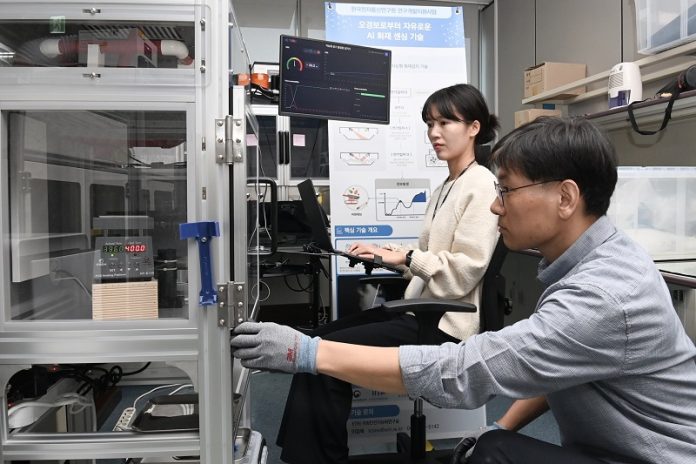
False fire alarms can be a big problem, wasting time, money, and emergency resources.
Now, a team of South Korean researchers from the Electronics and Telecommunications Research Institute (ETRI) has developed an AI-powered smoke detector that can tell the difference between real fire smoke and harmless particles like dust or steam.
This new technology greatly reduces false alarms and could soon be available for use in homes, businesses, and industries.
Traditional smoke detectors work by using infrared light and a light sensor. When smoke enters the detector, it scatters the light, which then triggers the alarm.
However, the problem is that other tiny particles, such as those from cooking, cigarette smoke, dust, or moisture, can also scatter light and cause false alarms.
According to South Korea’s National Fire Agency, from **2021 to mid-2022, firefighters were called out 258,220 times—**but 96.6% of these calls were due to false alarms! These unnecessary callouts cost the country KRW 20 billion (around $15 million) each year.
The new AI sensor developed by ETRI works differently. Instead of just detecting scattered light, it analyzes how particles scatter different wavelengths of light.
Each type of particle (smoke, dust, steam) scatters light in a unique way, and the AI can identify whether the particles come from a real fire or not before setting off an alarm.
Researchers built a database of particle light scattering patterns and trained AI to recognize them. This allows the AI smoke detector to filter out false alarms caused by non-fire sources while still accurately detecting real fires.
This new AI sensor will first be used in aspirating smoke detectors—a type of advanced smoke detector that draws in air using a fan to detect smoke faster than traditional detectors. However, these high-tech detectors are often expensive and prone to false alarms caused by dust or humidity.
By adding AI filtering, the new technology will make these detectors more reliable and reduce unnecessary alarm activations.
Currently, most high-end smoke detectors on the market are expensive imports that do not have AI false alarm prevention. If this South Korean-made AI smoke detector becomes available, it could be a game-changer in both domestic and global fire safety markets.
This AI-based light scattering technology could also be used in cosmetics, medicine, environmental science, and other industries that require precise particle detection. ETRI is already working with companies to bring this innovation to the market.
ETRI’s Director Kang Bok Lee believes that once commercialized, this technology will greatly reduce false alarms, save emergency resources, and cut down on unnecessary costs. In the future, AI-powered smart smoke detectors could make homes, businesses, and public places much safer and more efficient.


